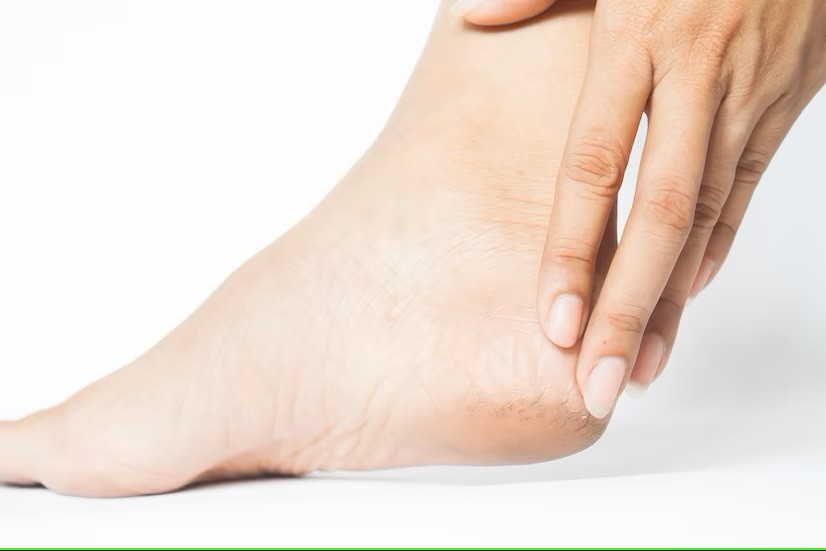Staphylococcal Scalded Skin Syndrome atau dikenal juga dengan 4S adalah infeksi kulit serius yang disebabkan oleh racun dari bakteri Staphylococcus aureus. Kondisi ini biasanya menyerang anak-anak di bawah usia 6 tahun, namun juga bisa dialami orang dewasa, khususnya yang memiliki sistem kekebalan tubuh yang lemah.
Penyebaran infeksi penyakit 4S adalah melalui kontak langsung dengan kulit seseorang yang terinfeksi, menyentuh benda-benda yang terkontaminasi, atau menyebar melalui tangan dan kuku yang kotor.
Penyebab Staphylococcal Scalded Skin Syndrome
Penyakit 4S (Staphylococcal Scalded Skin Syndrome) disebabkan oleh racun yang diproduksi oleh bakteri Staphylococcus aureus. Bakteri ini dikenal sebagai patogen yang dapat menyebabkan berbagai macam penyakit.
Sebenarnya, bakteri Staphylococcus aureus adalah bakteri yang umum ditemukan di kulit manusia dan tidak menimbulkan masalah. Namun, apabila bakteri ini masuk ke dalam tubuh melalui luka, bisa terjadi infeksi serius pada berbagai bagian tubuh.
Racun yang dihasilkan oleh bakteri ini memiliki kemampuan untuk berikatan dengan protein di lapisan luar kulit. Racun ini bisa menyebar melalui aliran darah. Orang dewasa sehat umumnya memiliki antibodi terhadap racun ini di dalam darah mereka. Namun, bayi dan anak-anak biasanya belum memiliki perlindungan yang sama karena sistem kekebalan tubuh mereka belum berkembang dengan sempurna untuk melawan racun tersebut.
Baca Juga: Melioidosis, Infeksi Bakteri Yang Membahayakan Jiwa
Gejala 4S (Staphylococcal Scalded Skin Syndrome)
Gejala penyakit 4S bisa berbeda-beda pada setiap anak. Umumnya, gejala yang muncul di antaranya:
- Anak sangat rewel
- Kelelahan
- Demam
- Kemerahan di kulit
- Terbentuknya lepuhan disertai air yang mudah pecah dan meninggalkan area lembut dan nyeri di kulit
- Terkelupasnya lapisan kulit bagian luar dengan ukuran yang lebar
- Luka di sekitar area popok atau tali pusat pada bayi baru lahir
- Luka di lengan, kaki, dan punggung anak
Baca Juga: Kenali Jenis Ruam yang Sering Muncul pada Bayi
Apakah Staphylococcal Scalded Skin Syndrome (4S) Bisa Disembuhkan?
Staphylococcal Scalded Skin Syndrome dapat diobati dan disembuhkan dengan perawatan medis yang tepat. Bayi dan anak-anak yang terserang 4S umumnya harus mendapatkan perawatan di rumah sakit di antaranya:
- Mendapatkan infus cairan untuk mencegah dehidrasi dan menjaga keseimbangan elektrolit
- Mendapatkan pengobatan antinyeri agar anak tidak merasa sakit dan mengurangi kegelisahannya
- Mendapatkan pengobatan antibiotik melalui infus untuk mengatasi infeksi bakteri
- Mendapatkan pengobatan topikal dengan krim, salep, dan juga luka yang dibungkus dengan pembalut untuk mengobati kulit yang rusak serta menjaga kelembapan kulit agar tidak terlalu kering
- Pemberian makan melalui selang dari mulut ke perut apabila dibutuhkan
Setelah mendapatkan perawatan di rumah sakit, bayi atau anak-anak biasanya akan merasa lebih baik. Namun, dibutuhkan waktu yang lebih lama sampai kulit mereka sembuh sehingga kebersihan kulit tubuh secara keseluruhan tetap perlu dijaga.
Begitu keluar dari rumah sakit, anak-anak tetap membutuhkan perawatan ekstra karena luka mereka masih belum sembuh sempurna. Luka tersebut berisiko mengalami komplikasi yang dapat menyebabkan syok, dehidrasi, bakteremia, sepsis, hipotermia, infeksi yang meluas ke bagian tubuh lain, dan infeksi sekunder.
Penting untuk segera mendapatkan pemeriksaan dan pengobatan dari dokter apabila Anda mencurigai anak mengalami 4S. Diagnosis yang cepat dan pengobatan tepat adalah kunci dari pemulihan penyakit ini.
Jangan ragu untuk berkonsultasi dengan dokter ketika bayi atau anak mengalami gejala yang tidak biasa. Anda juga bisa memanfaatkan layanan konsultasi kesehatan dengan mengunduh aplikasi Ai Care melalui App Store atau Play Store.
Mau tahu informasi seputar kehamilan, menyusui, kesehatan wanita dan anak-anak? Cek di sini, ya!
- dr. Alvidiani Agustina Damanik
Adam Ross and Hugh W. Shoff (2023). Staphylococcal Scalded Skin Syndrome. Available from: https://www.ncbi.nlm.nih.gov/books/NBK448135
John Hopkins Medicine. Staphylococcal Scalded Skin Syndrome. Available from: https://www.hopkinsmedicine.org/health/conditions-and-diseases/staphylococcal-scalded-skin-syndrome
WebMD (2023). What Is Scalded Skin Syndrome?. Available from: https://www.webmd.com/skin-problems-and-treatments/what-is-scalded-skin-syndrome
Tracey A. Taylor and Chandrashekhar G. unakal (2023). Staphylococcus aureus Infection. Available from: https://www.ncbi.nlm.nih.gov/books/NBK441868/











